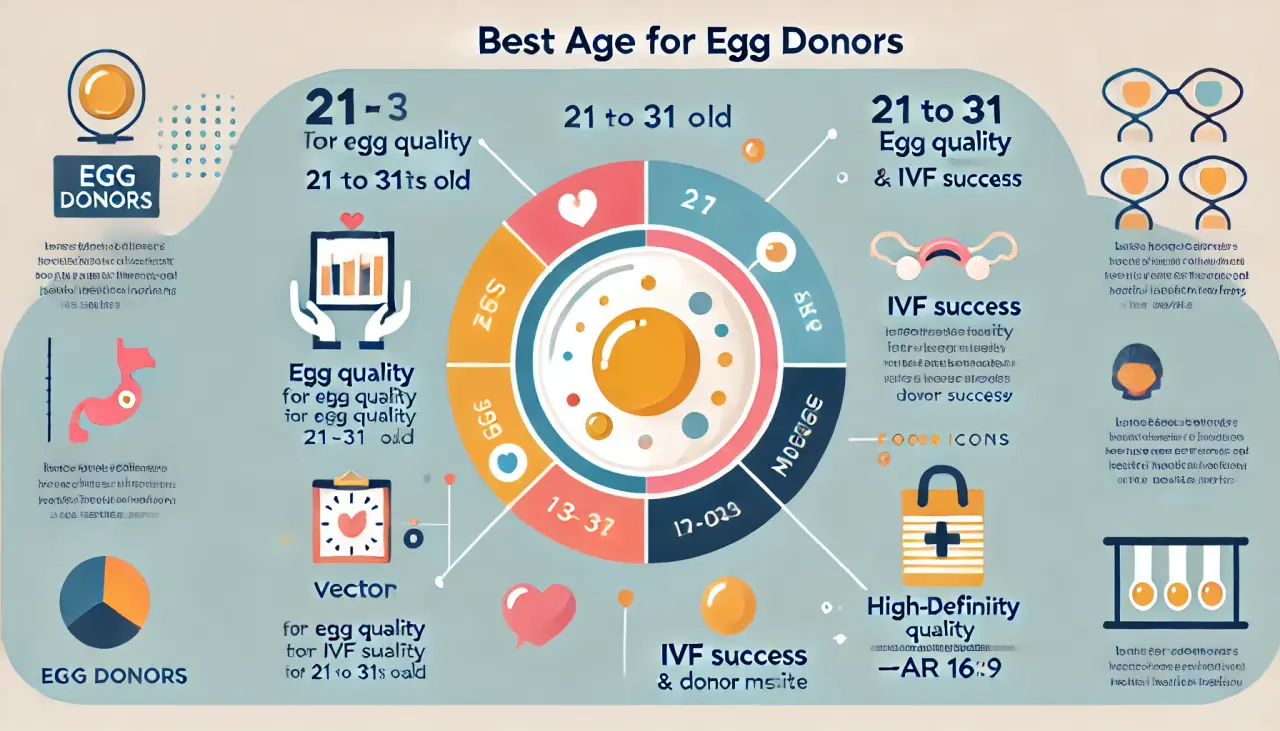
Egg Donation: What is the Best Age for Egg Donors and Age Limit Explained
Introduction
Egg donation is a generous and life-changing act that helps many couples realize their dream of becoming parents. One common question that arises is, “What is the best age for egg donors?” This is an important consideration, both for potential egg donors and for those seeking donated eggs for IVF treatment.
The ideal age for egg donation typically ranges from 21 to 31 years old. This age range is optimal because women in this age group have reached a point where their fertility is mature enough, and they are likely to understand the significance and responsibility of donating eggs. Additionally, the quality of eggs donated during this period is generally at its best.
While some suggest looking for younger donors, studies indicate that donors under 21 may pose higher risks, particularly when it comes to IVF success rates. In this article, we will explore the best age for egg donors and the reasons why age is such an important factor in the egg donation process.
1. Is There an Age Limit for Egg Donors?
Yes, there is an age limit for egg donors. The ideal age range for egg donation is 21 to 31 years.
But why does age matter? The reason is that age has a direct impact on a woman’s fertility and the quality of her eggs. Studies have shown that as women age, their ovarian reserve (the number of eggs they have) decreases, and the quality of those eggs also deteriorates. This means that a woman in her 30s may have lower quality eggs compared to a woman in her 20s.
In short, egg donors under 21 or over 31 may not be suitable due to the risks associated with egg quality, IVF success rates, and potential complications.
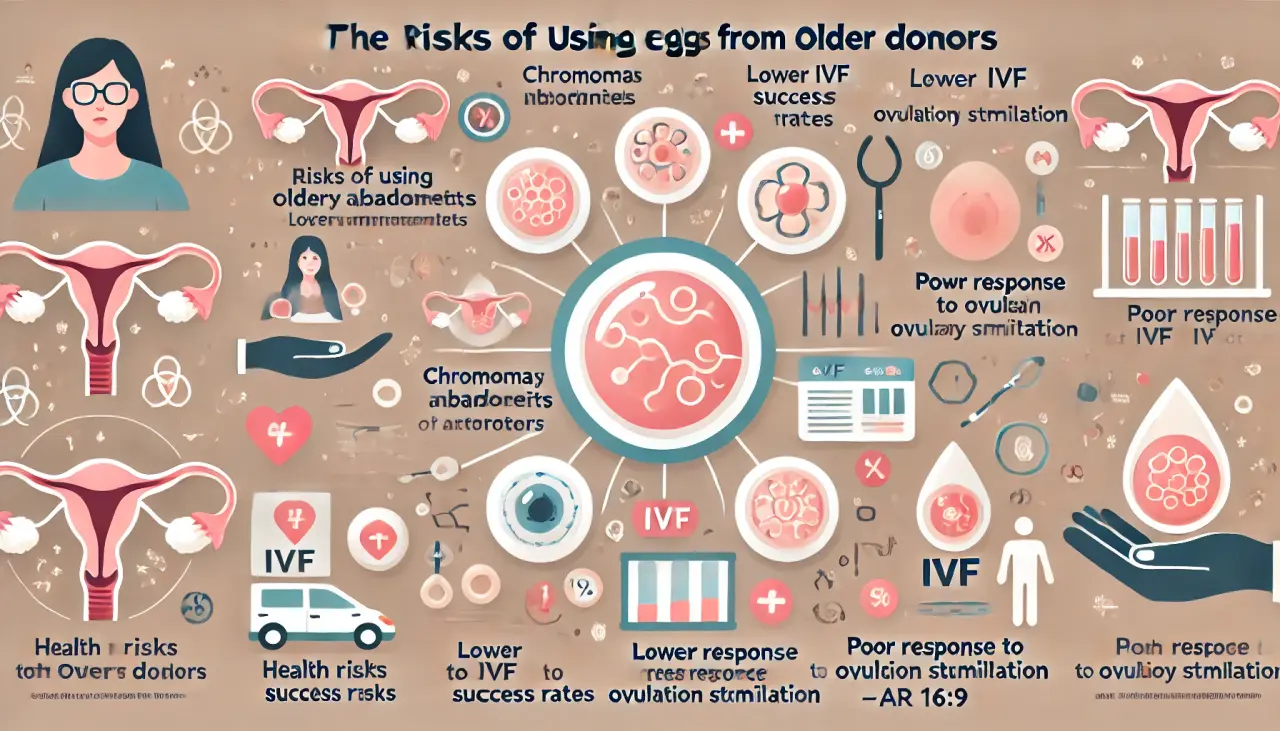
2. What Are the Risks of Using Eggs from Older Donors?
2.1 Chromosomal Abnormalities
As women age, the likelihood of chromosomal abnormalities in their eggs increases. These abnormalities can lead to serious conditions in the child, such as Down syndrome, Tay-Sachs disease, and cystic fibrosis.
Using eggs from younger donors helps significantly lower the risk of chromosomal issues. This is a key factor in any egg donation decision, as younger eggs are less likely to have genetic problems. Selecting a donor in the 21-31 age range minimizes these risks and increases the chances of a healthy baby through IVF.
2.2 Poor Response to Ovulation Stimulation
Older egg donors may also have a poorer response to ovulation stimulation (the process used to stimulate the ovaries to produce eggs for IVF). This can result in fewer eggs being retrieved, which may lower the chances of a successful IVF cycle.
Egg donors above the optimal age range are at greater risk for IVF cycle failure, and they may experience higher miscarriage rates.
3. What Is the Maximum Age for Egg Donors?
We’ve already discussed why age matters when selecting an egg donor, but what is the maximum age for egg donation?
In general, the age limit for egg donation is 35, with some fertility clinics setting the upper age limit even lower, at 30 years. Using eggs from donors over 35 significantly decreases the chances of IVF success due to the issues mentioned above, including chromosomal abnormalities and a poor response to ovulation stimulation.
3.1 Can Women Over 38 Donate Eggs?
In most cases, women over 38 are not considered ideal candidates for egg donation. The risks associated with egg quality, chromosomal issues, and lower IVF success rates are too high to make this a viable option.
Egg donation programs may allow women over 38 to donate eggs in very specific cases, such as donating to a close family member. However, the success rate is much lower, and it is generally discouraged for those seeking optimal IVF outcomes.
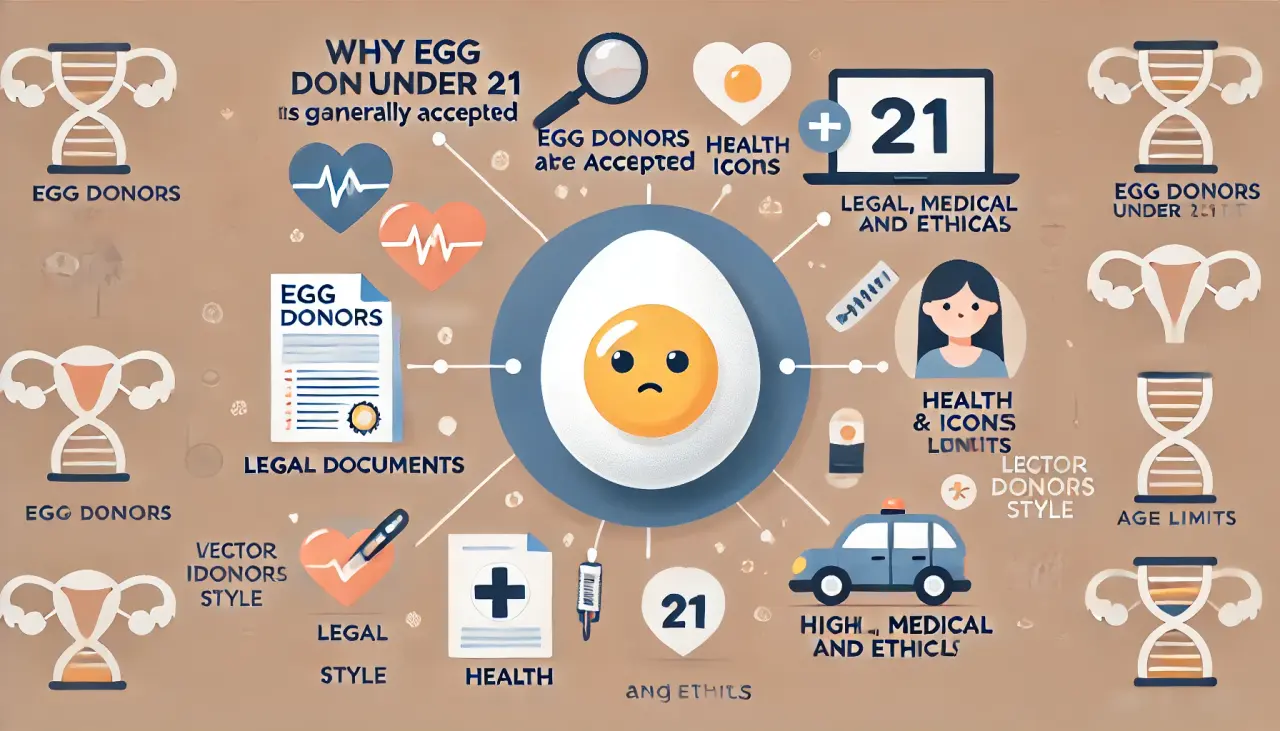
3.2 Can Women Under 21 Donate Eggs?
The minimum age for egg donation is typically 21 years old. While some younger women may be interested in egg donation, under 21s are generally not accepted as donors due to legal, medical, and ethical concerns. Moreover, studies have shown that donating eggs at a young age (under 25) may not necessarily improve IVF success rates.
While it’s tempting to assume that “the younger, the better,” research indicates that egg donors under 21 can actually present higher risks for IVF procedures, so this age group is generally avoided.
4. What Is the Best Age for Egg Donors?
The best age for egg donation is between 21 and 31 years old. This age range offers the perfect balance between fertility and maturity. Women in this group generally have high-quality eggs, a healthy ovarian reserve, and the emotional maturity to understand the responsibility of egg donation.
Choosing a donor from this age range ensures better chances of success in IVF cycles and minimizes potential health risks for both the donor and the recipient.
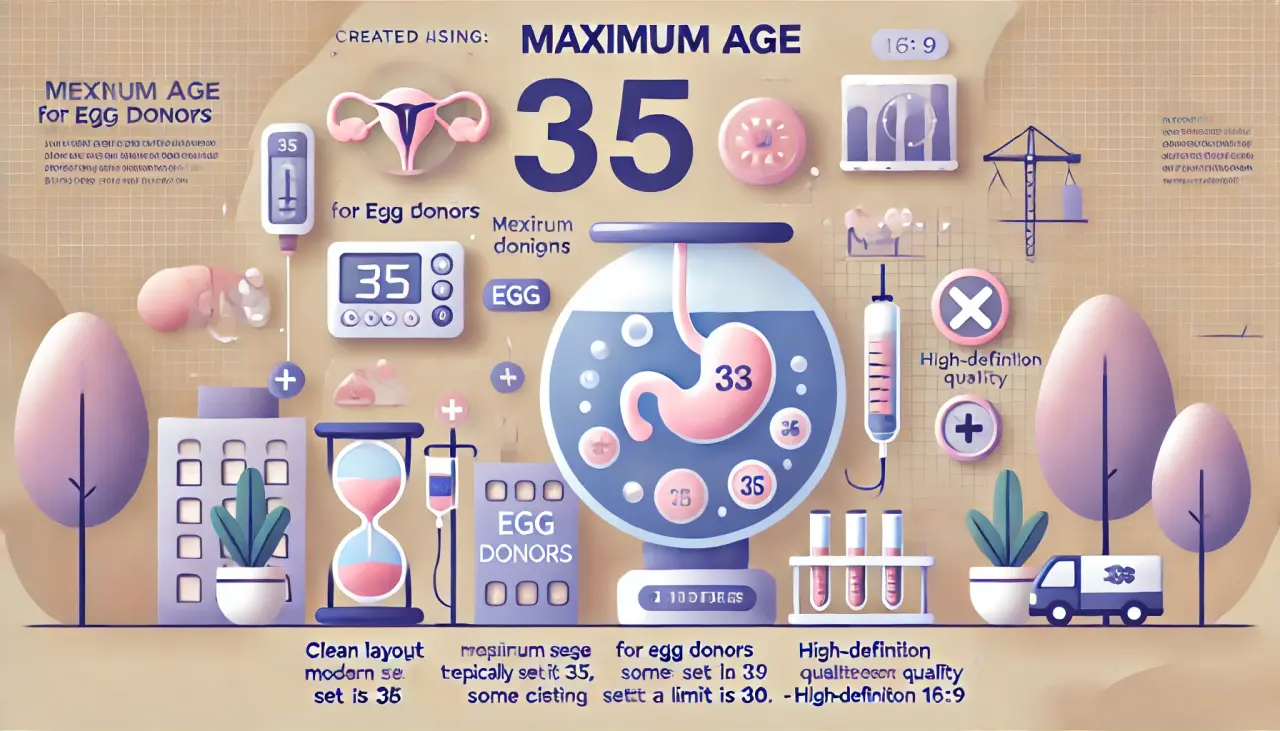
5. The Relationship Between Age and IVF Success Rates
When comparing IVF success rates with own eggs versus donated eggs, it becomes clear that the age of the egg donor plays a major role in the chances of a successful pregnancy. Younger donors tend to have higher-quality eggs, which greatly improves IVF success rates.
If the donor is younger, the success rate for IVF significantly increases. This is why choosing a donor under 35 increases the likelihood of success, especially for women who are older or who have other fertility issues, like poor egg quality or low ovarian reserve.
6. Overcoming Age-Related Challenges in Egg Donation
By choosing a donor in the ideal age range, you can greatly increase the likelihood of IVF success. Young, healthy egg donors provide the best chance of overcoming common IVF complications, like poor egg quality or ovarian issues.
Using eggs from a younger donor can make IVF cycles more successful and reduce the chances of complications. This is why age is one of the most critical factors when selecting an egg donor.
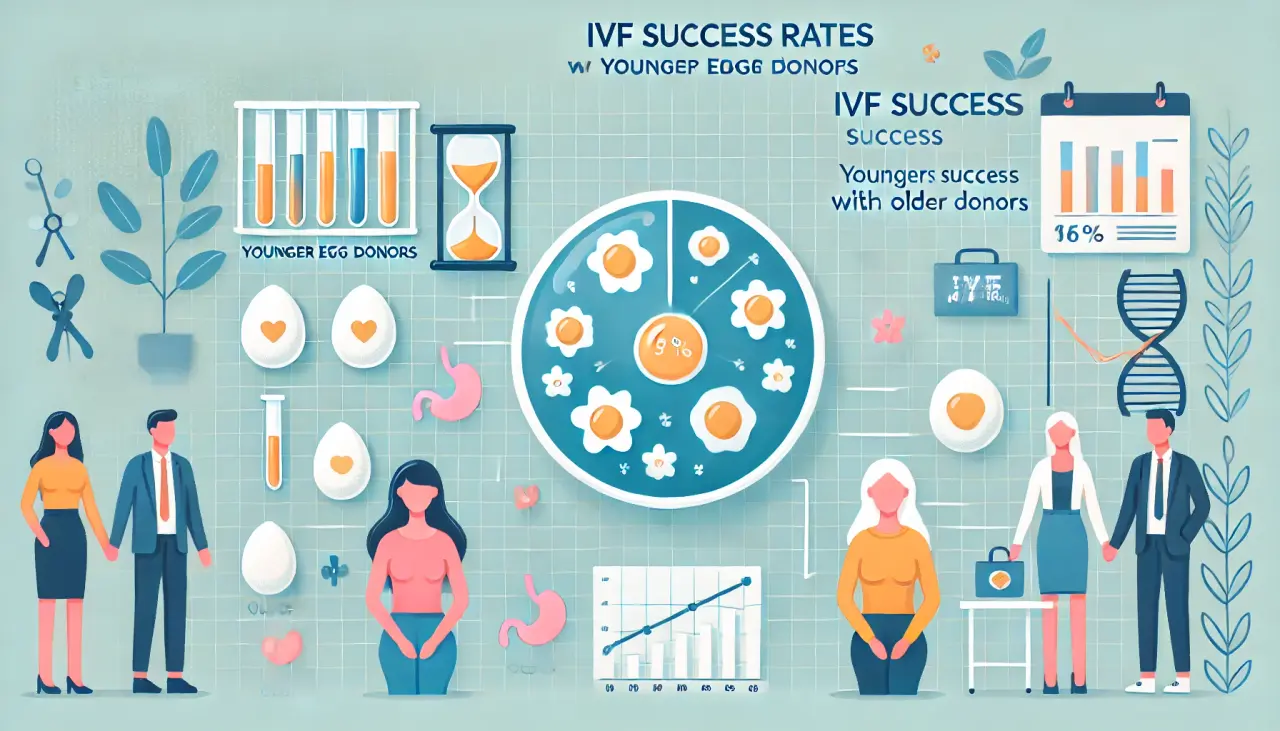
7. Improving IVF Success with Younger Egg Donors
For women with low ovarian reserve, early menopause, or other fertility issues, using eggs from a young donor can significantly increase the chances of a successful pregnancy.
In cases where ovarian issues are present, using eggs from a younger, healthier donor can provide a higher chance of success. Women with poor egg quality or diagnosed with ovarian insufficiency may have no other option but to use donated eggs to conceive.
Conclusion
In summary, the best age for egg donors is between 21 and 31 years old. This age range ensures healthy eggs, a better response to IVF stimulation, and fewer risks of genetic abnormalities. For those looking to undergo IVF with egg donation, selecting a donor within this age range is crucial to improving the chances of a healthy pregnancy.